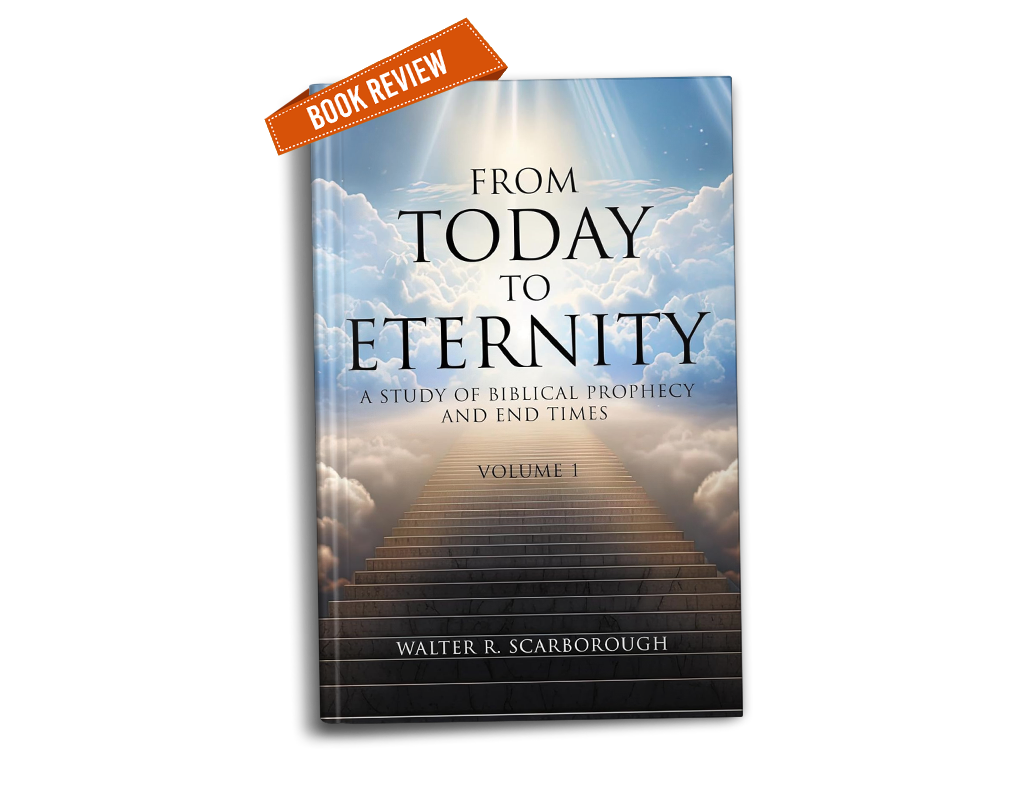
HEAR FROM THE BOOK EXPERTS

In partnership with Bookside Press

From Today to Eternity: A Study of Biblical Prophecy and End Times, Volume 1
Walter R. Scarborough
Reviewed by: Boze Herrington, The US Review of Books
“With the call of Abram, God began a special part of His Plan by selecting a special people that He would love for a special purpose, and for which He would provide for their needs.”
Scarborough has written a comprehensive overview of his perspective on prophecy and eschatology (the study of the end times). The author maintains that there has been a progressive unfolding of God’s revelation throughout history, first to the Jews and then to the Christian Church. Several passages in the book explain what Scarborough believes is God’s plan of salvation for all humankind, Gentile and Jew, through faith in Jesus. Drawing on letters of the apostle Paul, he notes that Gentles are now “joint heirs with God” and just as entitled to the benefits of being God’s children as God’s original chosen people.
The author is keen to show that the prophetic books of the Hebrew Bible foreshadowed the life, death, and resurrection of Jesus, “the central figure that the Bible pivots around.” Separate chapters discuss the work of the various members of the Trinity (the Father, Son, and Holy Spirit in mainstream Christian teaching), including the roles they play in provoking repentance and forgiving the believer of sins. The latter portions of the book discuss events that will take place prior to the second coming of Jesus, in which the Antichrist and his False Prophet govern the world and lead millions into perdition.
There’s much to love in Scarborough’s six-hundred-page presentation of biblical teaching. His notes are admirably thorough and packed with citations to eschatological scholarship. This book is a welcome antidote to the aversion to expertise that has taken root in the culture. He stays within the confines of Protestant orthodoxy and supports his positions with copious citations from scripture. The breadth of the author’s research into his subject is encyclopedic and reassuring. Reading the book, one is reminded at times of the contemporary pastor John MacArthur, who has a similar knack for making prophetic books accessible to laymen and women. Scarborough demonstrates an admirable familiarity with the books of Isaiah, Jeremiah, and the other Hebrew prophets. A note appended to the back of the book explains that he’s an architect by trade and began compiling the notes that would become the book while leading a group study on biblical prophecy some thirty years ago. There’s something endearing in his petition for the reader to remember he’s not a scholar but an autodidact (one who loves learning for its own sake).
Readers who have been wondering how their souls might be saved from hell but have not been able to find the answer in other books on Christian teaching will be relieved to find that Scarborough thoroughly and succinctly explains the process. Gentile believers who have agonized over whether they have access to the riches of God’s mercy can now set their hearts at rest, for Scarborough is keen to assure them that they do. The message of this book is a good one, and it manages to avoid the temptation towards sensationalism that bedevils so many books on biblical prophecy. Readers who are interested in understanding more about the subject and anyone who loves heavily annotated volumes will appreciate the magnitude of what Scarborough has accomplished here.

